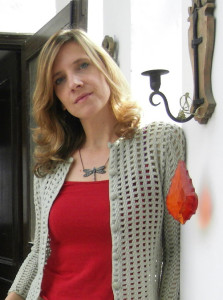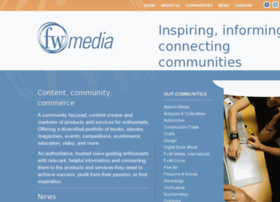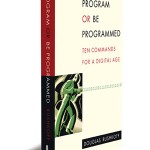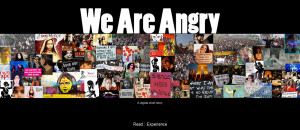Publishing Talks: Interview with Dan Harke of Mayo Clinic Press
October 5, 2022 by David
Filed under PublishingTalks, The Future
 Publishing Talks began as a series of conversations with book industry professionals and others involved in media and technology, mostly talking about the future of publishing, books, and culture. I’ve spent time talking with people in the book industry about how publishing is evolving in the context of technology, culture, and economics.
Publishing Talks began as a series of conversations with book industry professionals and others involved in media and technology, mostly talking about the future of publishing, books, and culture. I’ve spent time talking with people in the book industry about how publishing is evolving in the context of technology, culture, and economics.
Some time back, this series broadened to include conversations that go beyond the future of publishing. In an effort to document the literary world, I’ve talked with a variety of editors, publishers and others who have been innovators and leaders in independent publishing in the past and into the present.
These conversations have been inspirational to me on many levels. I have gotten to speak with visionaries and entrepreneurs, as well as editors and publishers who have influenced and changed contemporary literature and culture. I’ve also had the opportunity to speak with a number of friends and colleagues I have met over the many years I have been in the book business.
This week, I talked to Dan Harke, who manages the Mayo Clinic Press in Rochester, Minnesota. Mayo Clinic is doubtless familiar to Writerscast listeners – it is probably the best-known health care organization in America. It has 73,000 employees (including thousands of MDs) and cares for more than 1.4 million people annually. Mayo is almost always ranked as the number one hospital in the US.
For many years, Mayo Clinic licensed content to established publishers, and sold books direct to consumer only through its mail order business associated with its long-running Mayo Health Letter. Several years ago, Mayo established the Mayo Clinic Press to publish its own books, and now is in the process of growing to become a full line trade publisher, while still maintaining its mission-driven commitment to healthcare for the greater good. Aside from consumer health books, Mayo is now publishing children’s books, ebooks, audio books and podcasts, as well as its still vibrant health letter.
Dan comes to publishing from a diverse background with skills and knowledge in health care, marketing, and innovation, which gives him a very different perspective about publishing than many of us with experience mostly in trade publishing, so I think this conversation will be of interest to many Publishing Talks listeners.
You can look at MCP’s terrific website here.
In the interest of full disclosure, I want to mention that I am a consultant to MCP on trade publishing and marketing matters.
Podcast: Play in new window | Download
David Wilk talks with Lyndee Prickitt about We Are Angry
June 7, 2015 by David
Filed under Ebooks and Digital Publishing, PublishingTalks, Technology, The Future
 Lyndee Prickitt’s powerful and engaging storytelling project, We Are Angry, fits readily into both the categories of interviews I am doing here – she’s both the author of the (book) project as well as the primary publishing impressario who put together an innovative form of digital storytelling. But the interview does need to go into just one category, so I have chosen to call it a Publishing Talks interview. Publishing Talks began as a series of conversations with book industry professionals and others involved in media and technology about the future of publishing, books, and culture; Lyndee Prickett’s work is an important addition to that conversation.
Lyndee Prickitt’s powerful and engaging storytelling project, We Are Angry, fits readily into both the categories of interviews I am doing here – she’s both the author of the (book) project as well as the primary publishing impressario who put together an innovative form of digital storytelling. But the interview does need to go into just one category, so I have chosen to call it a Publishing Talks interview. Publishing Talks began as a series of conversations with book industry professionals and others involved in media and technology about the future of publishing, books, and culture; Lyndee Prickett’s work is an important addition to that conversation.
We Are Angry is a fictional response to the very real and difficult issues of rape and abuse of women in modern India.
From the We Are Angry website:
“After the brutal December 16, 2012 gang-rape in New Delhi, many people in India and beyond felt a need to express their anger, fears and concerns about why this was happening. Women and men took to the streets to put a voice to their anger. Social media swelled with introspection and pontification. Anonymous mourners created real life and online commemorations. Movie stars satirized and campaigned. Artists painted street walls and canvasses. Actors staged plays in local parks and international cultural festivals. Screenwriters wrote movies. Singers sang.
The conversation across the nation changed. Women and their rights was not just a matter for earnest do-gooders and NGOs, but the topic du jour and the inspiration for a panoply of expression for weeks and months. And then the din quietened. People tired of talking about how women, at home and abroad, have been and should be treated.
We Are Angry is an effort to keep the conversation alive – fusing traditional fictional text storytelling with other media, bolstered by real news content and annotations, and showcasing a range of art and expression from a team of people who want to harness their anger and work creatively for change.”
Lyndee Prickitt is a multimedia writer and journalist. She created her company, Digital Fables, to tell stories using the web as a platform. After working with Reuters and the BBC for more than 15 years, she wrote and produced the award winning digital short-story, Weareangry.net. Though a native Texan, Prickitt lives in New Delhi with her Indian husband and their daughter.
We Are Angry was nominated for a Webby, won the Transmedia Story of the Year from Digital Book World, and was a runner up in the New Media Writing Prize. The Guardian newspaper called it “devastatingly powerful.”
There has been a great deal of discussion within the international ebook community about whether digital storytelling will migrate away from devices and out to the web. What Lyndee Prickitt has done with We Are Angry is a powerful example of how this can be done. When you land on the site, you are immediately offered two options, one to “read” and the other to “experience” the story. I suspect most readers choose first to experience the story.
I really like what she says on the We Are Angry site about this project:
“We are living in mixed media times and yet rarely do we find the media coalescing in a truly integrated and artistic way, a way that could take storytelling – especially issue-based storytelling – to another level, not replacing books or the linear text experience, but offering another construct.
We Are Angry is an attempt, a humble first attempt, at doing this: creating 360 degree digital fiction.”
Listen to this interview, then visit the website and experience the story for yourself. Let me know what you think about it.
Podcast: Play in new window | Download
Publishing Talks: David Wilk Interviews Peter Costanzo
August 14, 2011 by David
Filed under Ebooks and Digital Publishing, PublishingTalks, Technology, The Future
 In this ongoing series of interviews, called Publishing Talks, I have been talking to book industry professionals and other smart people about the future of publishing, books, and culture. This is a period of disruption and change for all media businesses. We must wonder now, how will publishing evolve as our culture is affected by technology, climate change, population density, and the ebb and flow of civilization and economics?
In this ongoing series of interviews, called Publishing Talks, I have been talking to book industry professionals and other smart people about the future of publishing, books, and culture. This is a period of disruption and change for all media businesses. We must wonder now, how will publishing evolve as our culture is affected by technology, climate change, population density, and the ebb and flow of civilization and economics?
I believe that these Publishing Talks conversations can help us understand the outlines of what is happening in the publishing industry, and how we might ourselves interact with and influence the future of publishing as it unfolds.
These interviews give people in and around the book business a chance to talk openly and broadly about ideas and concerns that are often only talked about “around the water cooler,” at industry conventions and events, and in emails between friends. These conversations give people inside and outside the book industry a chance to hear first hand some of the most interesting and challenging thoughts, ideas and concepts being discussed by active participants in the book business.
I’ve known Peter Costanzo for a number of years (and have worked with him on a few projects) – I have always been impressed with his intelligence and his insightful understanding of online media and digital publishing. Peter is now the Director of Digital Content for F+W Media where he is in charge of a diverse and creative set of digital initiatives. Since he is now directing content and production for a publisher that has made a deep commitment to digital publishing, I wanted to talk to him in depth about ebooks, apps and online marketing, from his perspective as a producer as well as a consumer and keen observer of the digital publishing scene.
Peter has been involved in online bookselling for longer than most people in our industry. He began selling autographed books online in 1996. By 1998 he became the Online Retail Marketing Manager for HarperCollins. He then worked at Random House as Online Marketing Manager for the Audiobooks division, and in 2001 became Director of Online Merchandising for Steve Brill’s Contentville, one of the first online retailers to sell e-books. After that he became the Director of Online Marketing for Perseus Books for several years, before moving to F + W Media. He also teaches the “Introduction to Interactive Media” course at NYU. You can follow Peter on Twitter @PeterCostanzo and read his personal blog BookCurrents.
Peter has a lot of important things to say in this discussion that anyone interested in digital publishing will find useful and compelling.
Podcast: Play in new window | Download
Publishing Talks: David Wilk interviews John Oakes
October 26, 2010 by David
Filed under Ebooks and Digital Publishing, PublishingTalks, The Future
 In this series of interviews, called Publishing Talks, I have been talking to book industry professionals and other smart people about the future of publishing, books, and culture. This is a period of disruption and change for all media businesses. We must wonder now, how will publishing evolve as our culture is affected by technology, climate change, population density, and the ebb and flow of civilization and economics?
In this series of interviews, called Publishing Talks, I have been talking to book industry professionals and other smart people about the future of publishing, books, and culture. This is a period of disruption and change for all media businesses. We must wonder now, how will publishing evolve as our culture is affected by technology, climate change, population density, and the ebb and flow of civilization and economics?
I hope these Publishing Talks conversations will help us understand the outlines of what is happening, and how we might ourselves interact with and influence the future of publishing as it unfolds.
These interviews give people in and around the book business a chance to talk openly about ideas and concerns that are often only talked about “around the water cooler,” at industry conventions and events, and in emails between friends and they give people inside and outside the book industry a chance to hear first hand some of the most interesting and challenging thoughts, ideas and concepts being discussed by people in the book business.
OR Books was founded in 2009 by two very experienced book publishing veterans, Colin Robinson and John Oakes, who realized that after many years, that the way books have been published and sold in the 20th century no longer applies in the 21st. John’s description of their new venture (as told to O’Reilly Radar for their “TOC Evolvers” series) goes like this:
OR Books is driven by two concepts. Well, three. One: the current system of distribution and production, returns and discounts, in publishing doesn’t work for stores, authors, or publishers. Two: we will publish politically progressive and culturally adventurous work. Three: the classic rules of publishing still hold true: you need good editing, design, and marketing.
To address the first concept, we decided to scratch the Byzantine rules that surround the distribution and production of books: we sell straight to consumers, do intensive marketing, and then license the book to “traditional publishers.” We generally do not sell to wholesalers or booksellers, be they independent, Amazon, or Barnes & Noble. We are “platform agnostic,” offering consumers their books as ebooks or in physical, printed form. They choose.
I originally wanted to interview both John and Colin together, but the timing did not work out. Colin was someplace exotic like London, so I talked to John in his tiny home office in Manhattan. We had a great talk, as there is alot to talk about. Alert to listeners, and while this is the longest Publishing Talks interview I have done, at about 45 minutes long, I think well worth the investment of time and you can always listen to it in more than one sitting.
OR Books was founded by John Oakes and Colin Robinson as a publishing company embracing e-books and other new technologies. They have already published some excellent (and timely) books, their first being Going Rouge (a great book to launch with), Eileen Myles’ riveting novel Inferno, and Doug Rushkoff’s new Program or be Programmed. Their work is political, cultural, and literary, and so far has been terrifically interesting work.
John Oakes co-founded the publishing company Four Walls Eight Windows. When his company was purchased by the Avalon Publishing Group, he became publisher of Thunder’s Mouth Press, co-publisher of Nation Books, and vice president of Avalon. Among the authors he has published are Andrei Codrescu, Sue Coe, R. Crumb, Cory Doctorow, Andrea Dworkin, Abbie Hoffman, Gordon Lish, Harvey Pekar, Rudy Rucker, John Waters and Edmund White. Oakes serves on the board of PEN America. He has written for the Associated Press, the International Herald Tribune, and the Review of Contemporary Fiction.
Colin Robinson was until recently a senior editor at Scribner. Previously he was managing director of Verso Books and publisher of The New Press. Among the authors he has published are Tariq Ali, Noam Chomsky, Alexander Cockburn, Mike Davis, Norman Finkelstein, Eduardo Galeano, Eric Hobsbawm, Lewis Lapham, Mike Marqusee, Rigoberta Menchú, Matt Taibbi and Jann Wenner. He has written for a broad range of publications including The New York Times, The Sunday Times (London) and The Guardian (London) and has appeared on a wide range of broadcast media including NPR (“On the Media”), CNN, MSNBC, CBC and CSPN.
Podcast: Play in new window | Download
Publishing Talks: David Wilk interviews Ron Martinez
September 27, 2010 by David
Filed under Ebooks and Digital Publishing, PublishingTalks, Technology, The Future
 In this series of interviews, called Publishing Talks, I have been talking to book industry professionals and other smart people about the future of publishing, books, and culture. This is a period of disruption and change for all media businesses. We must wonder now, how will publishing evolve as our culture is affected by technology, climate change, population density, and the ebb and flow of civilization and economics?
In this series of interviews, called Publishing Talks, I have been talking to book industry professionals and other smart people about the future of publishing, books, and culture. This is a period of disruption and change for all media businesses. We must wonder now, how will publishing evolve as our culture is affected by technology, climate change, population density, and the ebb and flow of civilization and economics?
I hope these Publishing Talks conversations will help us understand the outlines of what is happening, and how we might ourselves interact with and influence the future of publishing as it unfolds.
These interviews give people in and around the book business a chance to talk openly about ideas and concerns that are often only talked about “around the water cooler,” at industry conventions and events, and in emails between friends and they give people inside and outside the book industry a chance to hear first hand some of the most interesting and challenging thoughts, ideas and concepts being discussed by people in the book business.
Ron Martinez, is Managing Partner and Co-Founder of Invention Arts. His primary focus is on [aerbook], a web-based publishing and marketing platform that helps books and potential readers find one another on the social web (www.aerbook.com). Ron is a prolific inventor, with close to a hundred and fifty issued patents and patent applications currently in flight. He brings a combination of, technical, creative, intellectual property development and management, design, and strategic and operational business experience to his work at Invention Arts, and finds that his initial interest in computing as an expressive medium continues to define his agenda.
His introduction to the medium was in the mid-80’s, when he was an aspiring novelist in New York, writing YA adventure books, contributing to humor anthologies, writing comics for Heavy Metal and other publications–anything to put food on the table. A book packager asked him to adapt an Arthur C. Clarke novel, Rendezvous with Rama, to graphic adventure format, perhaps the first major author’s works to be so adapted. Taken with the expressive possibilities of the medium, Ron taught himself to program software and built an interactive fiction system, and went on to use that and enhancements to it, as well as entirely new systems, to write interactive fiction, original murder mysteries, political simulations, and other titles for publishers like Simon & Schuster, Spinnaker, Philips Interactive Media, Electronic Arts, and others. By the mid-90’s he was deeply interested in the design of story-rich, massively multiplayer online games. His game 10Six was one of the first of these, a social/tribal million player game published and operated by Sega. (Though built in the late 90’s, it continues to thrive as an indie game at ProjectVisitor.com. 10six introduced ownable, transactable virtual goods for the first time, a technology Ron was awarded a foundational patent for in 2001. Virtual goods models have since emerged as a dominant form of commerce for social networks and social games.
Prior to his current work at Invention Arts, Ron worked for a number of years as Vice President, Intellectual Property Innovation for Yahoo! There he designed and built the IP Innovation function which over a four year period delivered high volume targeted, patentable IP and productizable innovation. He also initiated Yahoo!’s content IP asset management and operations program, implementing a global, real-time rights infrastructure called Rights Engine.
His interests include invention techniques; the evolution of books and the current reimplementation of the publishing industry, intellectual property strategy; content rights; content IP and social distribution; electronic payments; virtual property; online payments; networked games; educational software; social media; social media advertising and marketing; social media monetization; mobile media; media metadata; media sharing and reuse; media remixing; and distributed media production.
It was from Ron’s announcement of Aerbook that I learned of his work. I was very excited as soon as I began exploring this project, because it launched just as I have been thinking about the implications of publishing as a social endeavor in the digital universe. Aerbook in fact is created around the notion of book as a multi-channel conversation between writers and readers, and I think it demonstrates concretely how powerfully publishing can be re-imagined. Ron’s experience as a writer who has mastered the skills and tools of software development and storytelling in a digital environment also brings forward the changes in how writers can work in this new environment. I hope you will find this discussion as interesting and thought provoking as it was for me talking to Ron Martinez. I think we are just now seeing the true beginnings of a “modern” form of publishing that will in fact expand the reach of writers and change their relationships with readers for the good of all.
Podcast: Play in new window | Download
Publishing Talks: David Wilk interviews Tim O’Reilly
January 12, 2010 by David
Filed under PublishingTalks
 In this series of interviews, called Publishing Talks, I am talking to book industry professionals who have varying perspectives and thoughts about the future of publishing, books, and culture. This is a period of disruption and change for all media businesses.
In this series of interviews, called Publishing Talks, I am talking to book industry professionals who have varying perspectives and thoughts about the future of publishing, books, and culture. This is a period of disruption and change for all media businesses.
Publishing has been a crucial part of human culture for as long as people have been writing and reading. How will publishing evolve as our culture is affected by technology, climate change, population density, and the ebb and flow of civilization and its economics? Publishing Talks interviews help us understand the outlines of what is happening, and how we might ourselves interact with and influence the future of publishing as it unfolds. Publishing Talks interviews give people in the book business a chance to talk about ideas and concerns in a public forum that are often only talked about “around the water cooler,” at industry conventions and events, and in emails between friends.
I hope that Publishing Talks interviews will give people inside and outside the book industry a chance to hear about some of the thoughts, ideas and concepts that are currently being discussed by engaged individuals within the industry.
It was very exciting for me to have a chance to interview Tim O’Reilly, widely considered to be one of the smartest and most innovative publishers around. He’s been involved in the World Wide Web and computers for a very long time, and throughout that time, his work has been marked by intelligence, innovation, and clarity about what matters to consumers. We talked about the history of his involvement in publishing, the web, publishing technology, and his views about the way publishing needs to evolve using new digital tools and establishing new business models – with examples.
Here’s his bio: Tim O’Reilly is the founder and CEO of O’Reilly Media, thought by many to be the best computer book publisher in the world. The company also publishes online through the O’Reilly Network and hosts conferences on technology topics. Tim is an activist for open source, open standards, and sensible intellectual property laws.
Since 1978, Tim has led the company’s pursuit of its core goal: to be a catalyst for technology change by capturing and transmitting the knowledge of “alpha geeks” and other innovators. His active engagement with technology communities drives both the company’s product development and its marketing. Tim has built a culture where advocacy, meme-making, and evangelism are key tenets of the business philosophy.
Tim has served on the board of trustees for both the Internet Society and the Electronic Frontier Foundation, two organizations devoted to making sure that the internet fulfills its promise. He was on the board of Macromedia up until the recent merger with Adobe. He is currently on the board of CollabNet.
Tim graduated from Harvard College in 1975 with a B.A. cum laude in Classics. His honors thesis explored the tension between mysticism and logic in Plato’s dialogues.
An archive of Tim’s online articles, talks, and interviews can be found at Tim’s archive page.
Podcast: Play in new window | Download

